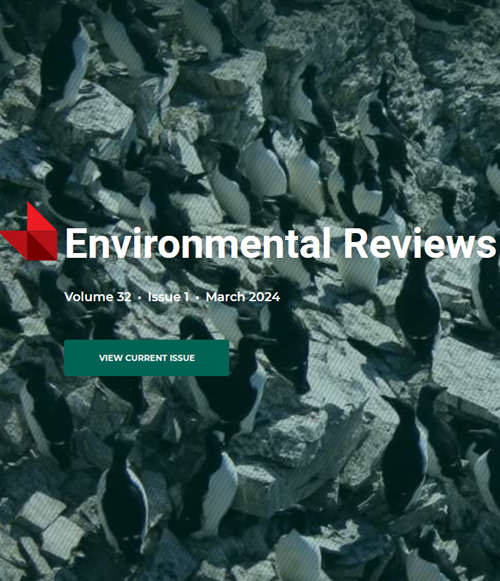Polycyclic aromatic hydrocarbons in terrestrial and aquatic environments following wildfire: a review
IF 5.1
3区 环境科学与生态学
Q2 ENVIRONMENTAL SCIENCES
引用次数: 3
Abstract
Wildfires are a natural landscape disturbance in many climates and forest types, but the cumulative impact of human-caused climate change, historical fire management and suppression, and changing species diversity in forests has led to an increase in the size and/or severity of wildfires in certain regions across the globe. There are a significant number of research studies on the effects of wildfire on human health, forest ecology, hydrology, and the physical, chemical, and biological properties of soils. However, research on the impact of wildfire on watersheds including toxicity in aquatic organisms, water chemistry, and fluvial sediment quality is less extensive, focusing primarily on water quality indicators such as nutrients and sediment flux. Recent research has shown that wildfires contribute to the environment significant amounts of polycyclic aromatic hydrocarbons (PAHs), which are compounds produced during the incomplete combustion of organic material, and are known to be toxic and mutagenic compounds. The primary objective of this paper is to review the recent literature that pertains to the contamination of surface waters and sediments, and source apportionment of wildfire-derived PAHs to determine where research gaps remain. Additional objectives are to assess the use of molecular ratios to apportion PAH sources, and finally, to create a roadmap for future studies in designing and conducting research that seeks to determine sources of wildfire-derived PAHs in water and sediment.野火后陆生和水生环境中多环芳烃的研究进展
在许多气候和森林类型中,野火是一种自然景观干扰,但人类引起的气候变化、历史火灾管理和扑灭以及森林物种多样性变化的累积影响导致全球某些地区野火的规模和/或严重程度增加。关于野火对人类健康、森林生态、水文以及土壤的物理、化学和生物特性的影响,已有大量的研究。然而,关于野火对流域的影响,包括水生生物的毒性、水化学和河流沉积物质量的研究并不广泛,主要集中在水质指标上,如营养物质和沉积物通量。最近的研究表明,野火对环境造成了大量的多环芳烃(PAHs),这是有机材料不完全燃烧时产生的化合物,已知是有毒和致突变的化合物。本文的主要目的是回顾有关地表水和沉积物污染的最新文献,以及野火衍生的多环芳烃的来源分配,以确定研究空白的地方。其他目标是评估使用分子比例来分配多环芳烃的来源,最后,为未来设计和开展旨在确定水和沉积物中野火衍生的多环芳烃来源的研究制定路线图。
本文章由计算机程序翻译,如有差异,请以英文原文为准。
求助全文
约1分钟内获得全文
求助全文
来源期刊

Environmental Reviews
环境科学-环境科学
自引率
3.50%
发文量
45
期刊介绍:
Published since 1993, Environmental Reviews is a quarterly journal that presents authoritative literature reviews on a wide range of environmental science and associated environmental studies topics, with emphasis on the effects on and response of both natural and manmade ecosystems to anthropogenic stress. The authorship and scope are international, with critical literature reviews submitted and invited on such topics as sustainability, water supply management, climate change, harvesting impacts, acid rain, pesticide use, lake acidification, air and marine pollution, oil and gas development, biological control, food chain biomagnification, rehabilitation of polluted aquatic systems, erosion, forestry, bio-indicators of environmental stress, conservation of biodiversity, and many other environmental issues.
 求助内容:
求助内容: 应助结果提醒方式:
应助结果提醒方式:


